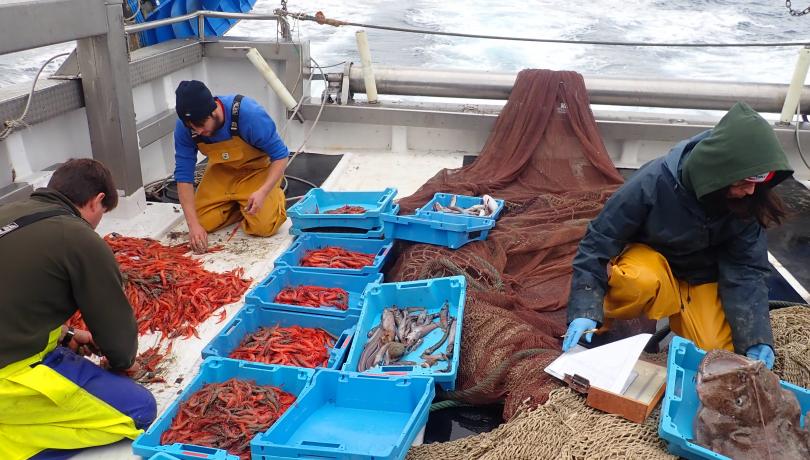The Directorate General of Fisheries and Maritime Affairs of the Department of Agriculture, Livestock, Fisheries and Food, the Institute of Marine Sciences and the fishermen from Blanes, Palamós, Roses, Port de la Selva and Llançà join in an unique initiative in the Mediterranean region: 500 km2 of Girona’s coastline will be managed by the same fishing sector and measures will be implemented to enhance the sustainability and preservation of marine resources.

The Directorate General of Fisheries and Maritime Affairs of the Department of Agriculture, Livestock, Fisheries and Food, the Institute of Marine Sciences and the fishermen from Blanes, Palamós, Roses, Port de la Selva and Llançà join in an unique initiative in the Mediterranean region: 500 km2 of Girona’s coastline will be managed by the same fishing sector and measures will be implemented to enhance the sustainability and preservation of marine resources.
The agreement, which was presented last Saturday in a meeting with the participation of Sergi Tudela, general director of Fisheries and Maritime Affairs, Eusebi Esgleas, senior employer of the Fishermen's Association of Blanes, and Joan B. Company, from the ICM Renewable Resources department, aims to establish a co-management model in several fishing grounds exploited by trawling nets, involving fishermen and scientists with the support of the administration.
These areas enjoy biological and ecosystemic characteristics with a significant value in terms of the reproduction of species of high fishing interest. To achieve this, we want to regulate access and fishing effort inside these areas.
The idea of promoting a singular management of fishing grounds arose as a result of the awareness of the same sector regarding the degradation of fishing resources. Thus, it was the same group of fishermen who had the initiative to go beyond the regulations and implement their own measures to enhance sustainabilit.
To achieve this goal, the fishing sector contacted the administration (Generalitat de Catalunya) and the scientific sector (Institute of Marine Sciences, CSIC) to receive advice. In this sense, the scientific team of the ICM is in charge of monitoring the fish and crustacean populations in these zones to analyze the effects of the new management measures on the fishing populations of interest. On the other hand, the administration accompanies in the management and makes available the required European funding.

Aling with European conservation policies
This initiative contributes in an outstanding manner to achieve the sustainability objectives established by the Common Fisheries Policy and exemplifies the commitment of the Catalan trawling sector for the recovery of fishery resources in a manner compatible with the maintenance of the socioeconomic viability of the sector. The agreement comes just as the European Commission has presented a proposal for a regulation for a sub-regional management plan for bottom species fisheries in the Western Mediterranean, which will soon be discussed in the European Parliament.
ICM scientists, leaders in the management of fishery resources
This agreement coincides with the renewal of the Management Plan for the red shrimp, a plan started in 2013 that regulate the capture of this prawn species (Aristeus antennatus) in several fishing grounds of Palamós, adjusting the number of boats and closures of fishing, which are now renewed until 2023, after the good results obtained during the first five years of application. Joan Baptista Company research group is also in charge of evaluating the state of these populations and advising on the appropriate measures to guarantee their sustainability in the future. This plan, together with the new agreement of Girona coast, places ICM scientists as leaders in the management of fishery resources.
More information (in catalan): Generalitat de Catalunya